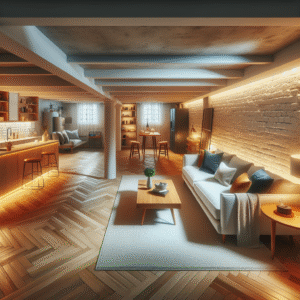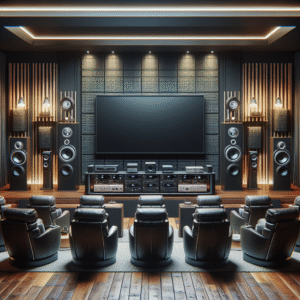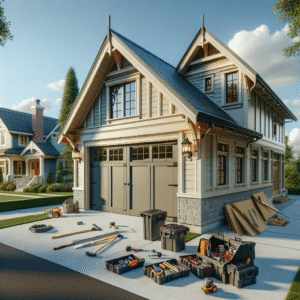Why should every home have a water filtration system? It’s not just about improving the taste of your water; it’s about ensuring the health and safety of your household. In this blog, we’ll explore the critical importance of water filtration and how it can benefit every home. Whether you’re concerned about contaminants or simply looking for better tasting water, a filtration system can be a transformative addition to your residence. Let’s dive into why installing a water filtration system is an essential step for homeowners.
Understanding the Importance of Water Filfiltration: Why Every Home Needs a System
Water quality concerns are increasing globally, making water filtration not just a luxury, but a necessity. The presence of pollutants like lead, chlorine, and other chemicals in tap water can pose serious health risks. A reliable water filtration system not only ensures safer, cleaner water but also extends the life of your appliances by preventing buildup of minerals and chemicals.
Top 5 Benefits of Installing a Water Filtration System in Your Home
- Enhanced Water Quality: Significantly reduces the presence of contaminants.
- Cost-Effective: Save money in the long run by cutting down on bottled water purchases.
- Environmentally Friendly: Decreases plastic waste from bottled water.
- Better Tasting and Smelling Water: Removes elements that cause odor and poor taste.
- Healthier Home: Protects from potential health hazards in unfiltered tap water.
How to Choose the Right Water Filtration System: A Buyer’s Guide for Homeowners
Choosing the right water filtration system involves understanding the specific contaminants present in your water and determining the volume of water your household consumes. From simple pitcher filters to more sophisticated reverse osmosis systems, options vary widely. Consider factors such as filtration rate, maintenance requirements, installation costs, and system longevity to ensure you select a system that meets your needs.
Ensuring you have a proper water filtration system in your home is crucial, not just for the quality of water, but for the overall health and well-being of your family. Stay tuned as we explore these aspects in greater detail, helping you make a well-informed decision for your home.
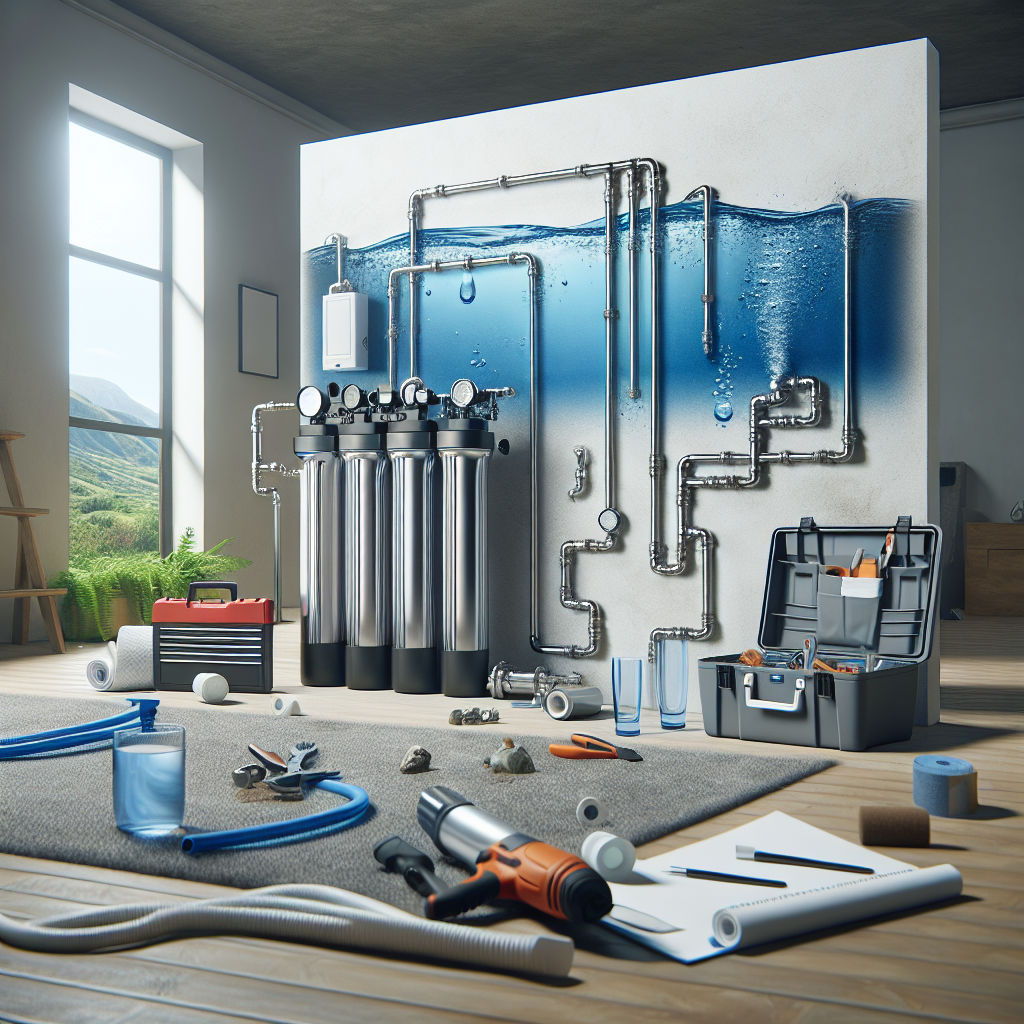
If you’re ready to take your home improvement or construction project to the next level, we can help! Find trusted contractors on BuildNet, whether you’re looking for renovations, new builds, electrical work, plumbing, or anything in between. Our directory connects you with qualified professionals who can make your vision a reality.
Understanding the Importance of Water Filtration: Why Every Home Needs a System
Hey there! If you’re on the fence about whether or not to invest in a water filtration system for your home, you’re in the right place. Today, we’re diving deep into why having a water filtration system isn’t just a fancy upgrade but a necessary component for a healthier, happier household. So, let’s filter through the noise and get into the clear, pure reasons why this is something every homeowner should consider.
What is Water Filtration and How Does It Work?
Before we jump into the whys, let’s talk about the what and the how. Water filtration is the process of removing or reducing unwanted substances from your water supply. Whether it’s sediment, rust, chlorine, or even harmful pathogens, a good water filtration system can tackle these and more, ensuring that the water you drink, cook with, and bathe in is clean and safe.
Systems vary from simple jug filters to whole-house systems, but they all work on similar principles – they trap contaminants in a filter and allow clean, filtered water to pass through. This can involve different technologies like activated carbon, reverse osmosis, or UV treatments, each catering to different filtration needs.
Improving Health and Safety at Home
The primary reason to consider a water filtration system is the health benefits. Unfiltered water can contain various chemicals and microorganisms that are potentially harmful. For instance, lead, which can leach from old pipes, poses a severe risk to health, particularly to children. A proper filtration system can reduce these risks significantly, giving you peace of mind every time you turn on your tap.
Moreover, did you know that chlorine, commonly used to treat public water supplies, can combine with other natural compounds to form byproducts that have been linked to increased cancer risks? A robust filtration system can remove these, keeping your family’s long-term health in check.
Enhancing Taste and Odor
Ever poured yourself a glass of water only to be turned off by a strange taste or odor? That’s your cue for a filtration system. Clean water shouldn’t have any taste or smell, and if it does, it could be a sign of contaminants. A water filtration system can remove substances that contribute to poor taste and odor, ensuring your water is just the way it should be: fresh and clean.
Protecting Plumbing and Appliances
Your home’s plumbing system and appliances also stand to benefit from filtered water. Minerals and chemicals in unfiltered water can build up over time, causing corrosion and damage to pipes, faucets, and appliances like washing machines and dishwashers. This not only shortens their lifespan but can also lead to costly repairs. Filtered water means less sediment and mineral buildup, which can significantly extend the life of your plumbing systems and appliances.
Better for the Environment
If you find yourself buying bottled water regularly because you don’t trust your tap water, a filtration system is a sustainable step forward. Not only does it reduce your reliance on plastic bottles, which are a major environmental concern, but it also means less bottled water production overall, which involves significant resource and energy use. By choosing to filter your own water, you’re making a choice that benefits both your household and the planet.
Cost-Effective in the Long Run
While there’s an upfront cost to installing a water filtration system, it’s an investment that pays off in the long run. Consider the savings from not purchasing bottled water or the reduced frequency of plumbing repairs and appliance issues. Over time, these savings can be significant, making it a wise choice economically.
Local Water Quality Concerns
Every area has its own set of water quality issues, whether it’s hard water problems in some regions or high chlorine levels in others. Getting a water test can tell you what’s in your water and help you choose the right filtration system for your needs. Plus, many local companies specialize in these systems, so finding help nearby for installation and maintenance is usually a breeze.
Investing in a water filtration system is a proactive step towards ensuring the water you use daily is safe, tasty, and beneficial for your appliances and plumbing. Not only does it contribute to the overall health and well-being of your household, but it also supports a healthier environment. So, if you’re thinking about whether it’s worth the investment, considering the myriad of benefits, it’s clear that it’s not just a luxury—it’s a necessity for every home.
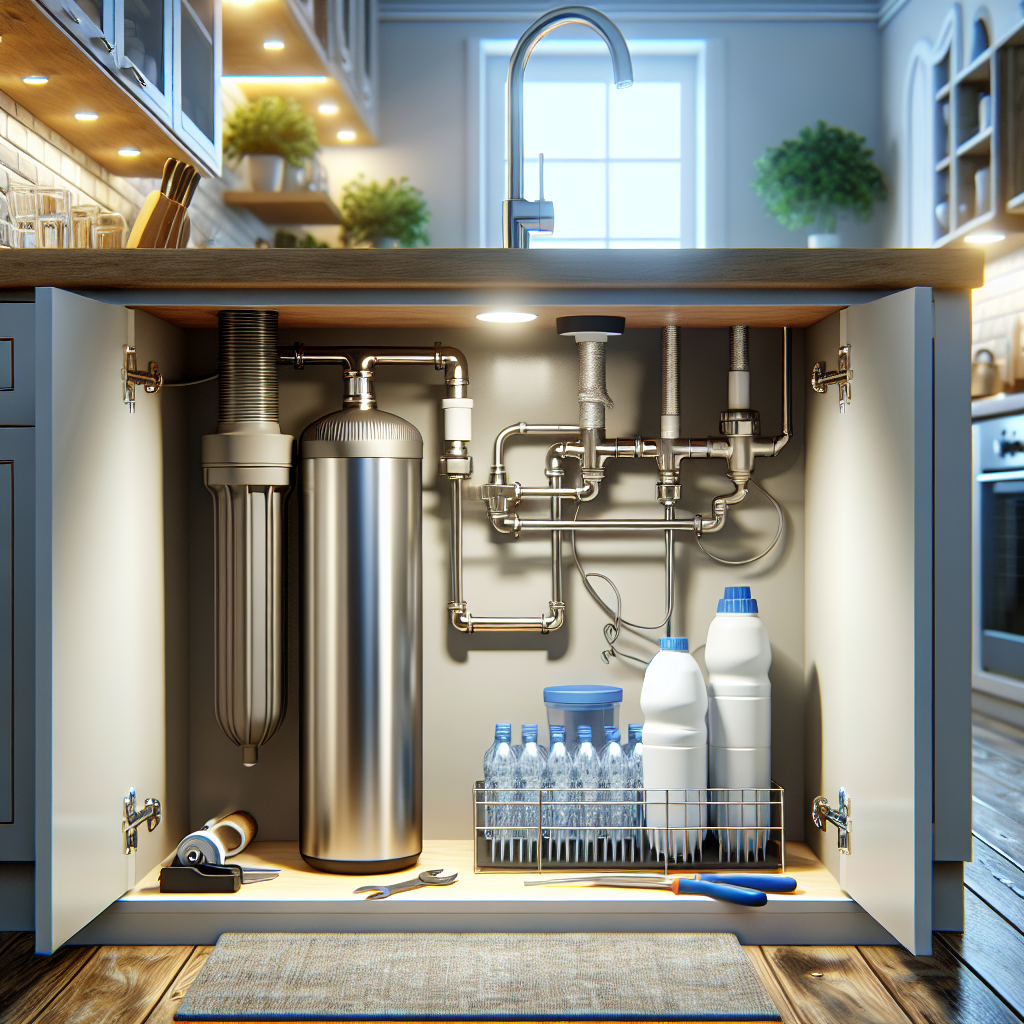
Top 5 Benefits of Installing a Water Filtration System in Your Home
Hey there! If you’re contemplating whether to install a water filtration system in your home, let me dive into some compelling reasons that just might tip the scales in favor of getting one. A water filtration system isn’t just a fancy addition to your modern home; it’s a functional upgrade that can significantly enhance your daily living. Here are the top five benefits that might just convince you to make that all-important investment.
1. Say Goodbye to Contaminants
First things first, the most immediate benefit of a water filtration system is its ability to remove various contaminants from your water supply. From chlorine, lead, and pesticides to more sinister bacteria and viruses, a robust filtration system can handle them all. Clean water isn’t just about taste; it’s about your health. By stripping away these unwanted guests, your home’s water becomes safer to drink, cook with, and even bathe in.
**Pro Tip:**
When choosing a system, look for certifications like those from the National Sanitation Foundation (NSF) or the American National Standards Institute (ANSI) to ensure real peace of mind about the quality of your water.
2. Enhance Taste and Clarity
Ever noticed a slight chlorine taste in your tap water? Or perhaps it’s a bit cloudy? A water filtration system can significantly improve the taste, odor, and clarity of your water by filtering out the chemicals and particulates responsible for these issues. Imagine crisper, cleaner water straight from your tap every time—it’s a game changer for your morning coffees and cooking recipes!
3. Reduce Plumbing Issues and Appliance Damage
Hard water, rich in minerals like calcium and magnesium, doesn’t just taste funky; it can wreak havoc on your plumbing and water-using appliances. These minerals build up over time, leading to clogs, corrosion, and other costly plumbing issues. Filtration systems that soften water or remove sediments extend the life of your pipes, hot water heaters, washing machines, and dishwashers, saving you a bundle on maintenance and repairs.
**Local Insight:**
Chat with a local contractor from BuildNet’s directory to identify if your area has hard water and the specific filtration system that’s best suited for your home setup.
4. Environmentally Friendly
Think about the number of plastic water bottles you’d avoid buying with a reliable water source at home. By installing a water filtration system, you’re not just ensuring a continuous supply of clean water, but you’re also reducing your plastic waste and overall environmental footprint. It’s a win-win for you and the planet!
**Sustainability Tip:**
Opt for a system with a long filter life, or one that’s easy to maintain, to minimize waste from frequent replacements.
5. Increase Home Value
Last but not least, a water filtration system is a valuable addition to any home, especially if you’re thinking about selling in the future. Today’s homebuyers are increasingly health-conscious and environmentally aware, and a built-in water filtration system could be a key selling point. Plus, it shows that the home has been well cared for, which can ease potential buyer concerns about maintenance and quality.
There you have it! Installing a water filtration system offers numerous benefits that extend beyond just having cleaner water. It’s about enhancing your lifestyle, protecting your health, and even boosting your home’s value. Ready to make the leap? Check out BuildNet’s directory of local contractors who specialize in water filtration systems, and find the perfect expert near you.
How to Choose the Right Water Filtration System: A Buyer’s Guide for Homeowners
Hello there! If you’re diving into the world of water filtration for your home, you’ve made a great decision towards healthier living. There’s a sea of options out there, and I’m here to help you navigate through them. Whether you’re dealing with hard water issues, concerned about contaminants, or just aiming for better-tasting water, the perfect filtration system is within reach. So, let’s jump right in and find out how to choose the one that fits your home’s needs perfectly!
Understanding Your Water Source
First things first, knowing the source of your water is crucial. Is your water coming from a municipal supply or a private well? This affects the contaminants you might be dealing with. Municipal water users can obtain quality reports from their local water provider, which is a fantastic starting point. Well owners might need a more comprehensive test to determine what’s exactly in their water. Local laboratories or sometimes even local universities offer testing services.
Identifying Your Needs
What’s your main concern? Are you worried about the health aspects, the aesthetics of your water, or maybe both? Here are a few common concerns:
- Health contaminants: Chemicals, heavy metals, and pathogens can pose health risks.
- Taste and odor: Chlorine, sulphur, and certain organic compounds can affect water’s taste and smell.
- Hardness: High levels of calcium and magnesium can cause scaling and damage appliances.
Each concern may require a different type of filtration technology, so it’s important to define what matters most to you.
Exploring Filtration Technologies
There are several types of water filtration technologies available, each suited for different contaminants:
- Activated Carbon Filters: Great for removing chlorine, sediments, and volatile organic compounds (VOCs), improving taste and odor.
- Reverse Osmosis Systems: Highly effective in reducing a wide range of contaminants, including fluoride, lead, and other heavy metals.
- Ion Exchange: Ideal for softening hard water by exchanging calcium and magnesium ions with sodium or potassium ions.
- Ultraviolet Filters: Uses UV light to kill bacteria and viruses without adding chemicals to the water.
Consider the Installation and Maintenance
Think about where you want your filtration system installed. Options include under the sink, whole-house systems, or simple countertop models. Each has its pros and cons regarding installation complexity and maintenance requirements. Whole-house systems, for instance, provide filtered water throughout your home but may require professional installation and regular maintenance checks.
Check the Certifications
When shopping for a water filtration system, look for certifications from reputable organizations such as the National Sanitation Foundation (NSF) or the Water Quality Association (WQA). These certifications mean the systems have been tested and proven to remove certain contaminants.
Assess the Cost
Your budget plays a significant role in your decision. Consider both the initial purchase price and the long-term costs of filter replacements and maintenance. Sometimes, a more expensive system might be more cost-effective over time due to lower maintenance costs.
Read Reviews and Ask for Recommendations
Don’t just take my word for it; read what others are saying about the systems you’re considering. Product reviews and user feedback can provide real-world insights into a system’s performance and reliability. Also, asking friends or family who already have a system installed can give you direct feedback and possibly a trusted referral.
Think About the Environment
Lastly, consider the environmental impact of your choice. Some systems, like reverse osmosis, produce wastewater. If conserving water is a priority for you, this might influence your decision. On the other hand, reducing the reliance on bottled water by having clean, filtered water at home is an eco-friendly move!
Choosing the right water filtration system might seem daunting at first, but with a little research and a clear understanding of your needs, you can find the perfect match for your home. Remember, cleaner water is not just about taste, it’s about health and well-being, so take your time and choose wisely. Good luck!
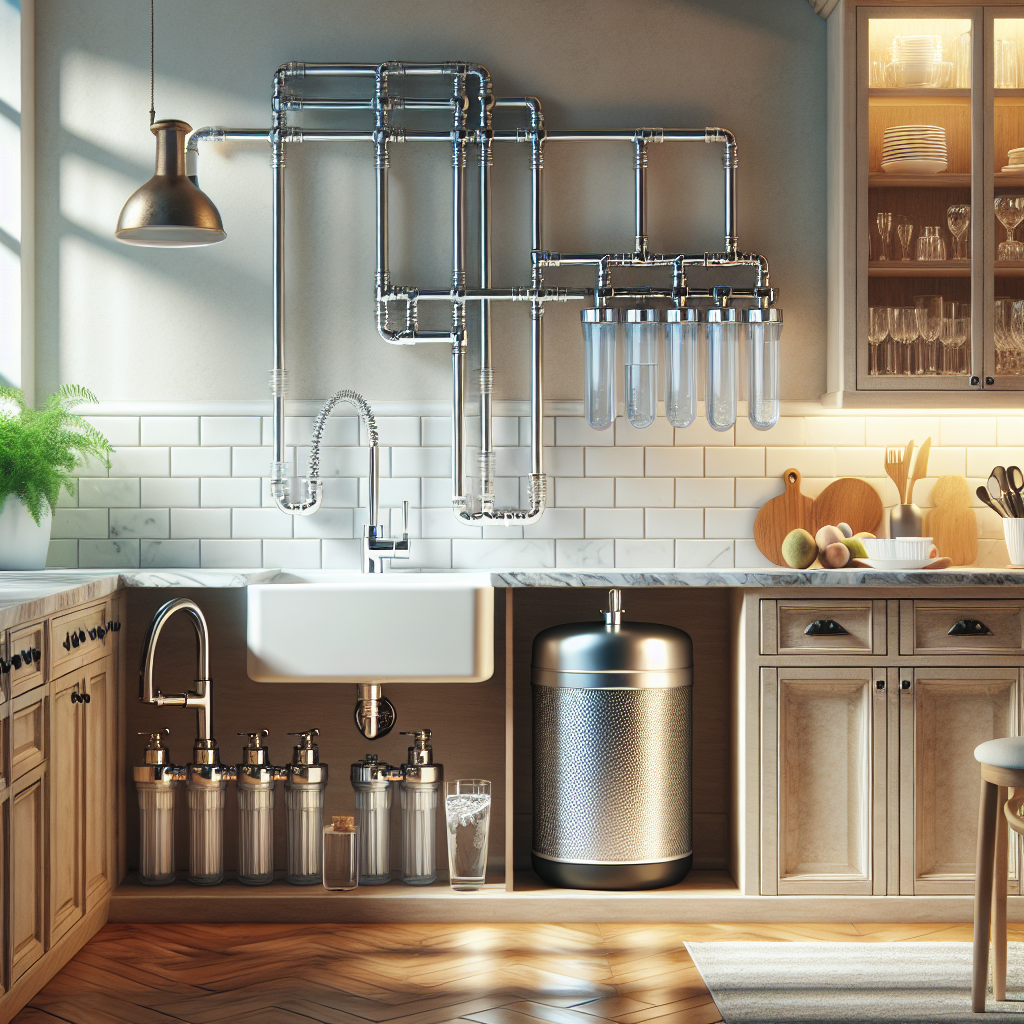
Frequently Asked Questions About Water Filtration Systems
What exactly does a water filtration system do?
A water filtration system is designed to remove impurities and contaminants from your home’s water supply. Whether it’s through physical barriers, chemical processes, or a combination of methods, these systems help ensure the water you drink, cook, and bathe with is clean and safe.
Why should I consider installing a water filtration system in my home?
Installing a water filtration system can significantly enhance the quality of your home’s water. It can remove undesirable tastes, odors, and harmful contaminants, providing your family with healthier drinking water and potentially improving your overall health.
Are there different types of water filtration systems available?
Yes, there are several types of water filtration systems, including activated carbon filters, reverse osmosis systems, UV water purifiers, and sediment filters. Each type targets different contaminants and may be more suitable depending on your specific water quality needs.
How do I know which water filtration system is right for my home?
Choosing the right system depends on the specific contaminants in your water and your household water usage. It’s beneficial to get a water quality report from your local water provider or have your water independently tested to identify contaminants before selecting a system.
Can a water filtration system reduce my utility bills?
While the initial setup might be an investment, many homeowners find that a water filtration system can help reduce costs in the long run. By improving the quality of tap water, it reduces the need for bottled water and can also protect your appliances from scale buildup and early wear.
Is it difficult to install a water filtration system?
Installation complexity can vary based on the type of system you choose. Simple under-sink filters might be an easy DIY project, while whole-house systems typically require professional installation. Consulting with a contractor can ensure it’s installed correctly for optimal performance.
How often do water filtration systems need maintenance?
Maintenance varies by the type of filtration system. Some might need monthly filter changes, while others might require less frequent maintenance. Regular maintenance is crucial to keep the system working effectively and to ensure the quality of your water is maintained.
Can a water filtration system improve the taste and smell of my tap water?
Absolutely! Many systems are specifically designed to remove chemicals such as chlorine and contaminants that can affect the taste and odor of water, making your drinking water more enjoyable.
Are water filtration systems environmentally friendly?
Yes, they can be. By reducing dependency on bottled water, you decrease plastic waste. Systems like reverse osmosis also use no energy, making them an eco-friendly choice for water purification.
Where can I get a professional to install or service a water filtration system?
For professional installation or service, contact a local contractor through BuildNet’s website. They can provide expert advice tailored to your needs and a free quote for installation or maintenance services.
Conclusion
Now that you’re equipped with a solid understanding of the benefits and considerations of home water filtration systems, you’re well on your way to making an informed decision for your household. Remember, clean and safe water is not just a convenience—it’s a necessity for good health and well-being.
Whether you’re concerned about contaminants, seeking better-tasting water, or looking to improve your home’s overall water quality, a filtration system can make a significant difference. Don’t hesitate to reach out to a local expert through BuildNet for personalized advice and a free installation quote. With the right system, you can enjoy the peace of mind that comes with having pure, safe water flowing through every tap in your home. Protect your health, enhance your lifestyle, and potentially even save money in the long run with a tailored water filtration solution.

